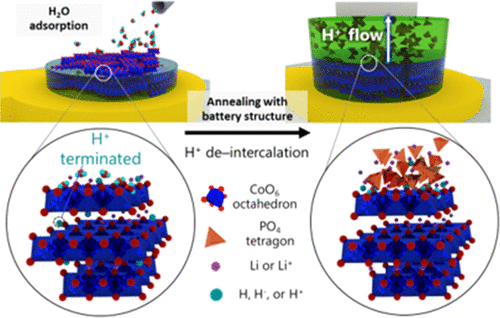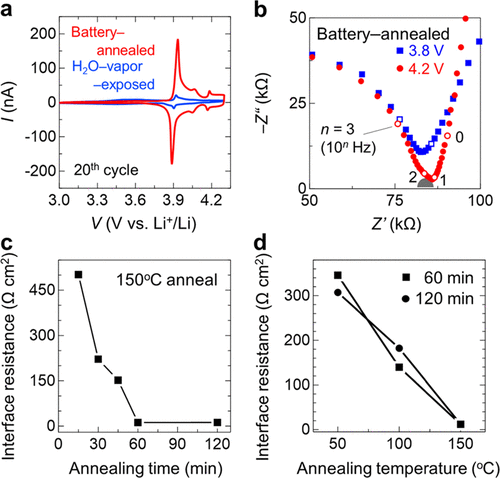

All-solid-state battery: Elucidating the factors that reduce performance: Proton is the culprit
-Performance improvement by heat treatment at 150 ℃-
Tokyo Institute of Technology,
The University of Tokyo,
National Institute of Advanced Industrial Science and Technology,
Yamagata University,
The research group has elucidated one of the factors that reduce the performance of all-solid-state batteries.
With just heat treatment
Significantly improve degraded performance,
We also succeeded in developing new technology.
All-solid-state battery:
-Elucidation of performance degradation factors-
Conventional problems:
The all-solid-state battery has a large “interfacial resistance formed by the solid electrolyte and the electrode”.
Therefore, the problem was that “the time required for charging is longer than that of a lithium-ion battery”.
This discovery:
The interfacial resistance of all-solid-state batteries is
It was discovered that water vapor in the atmosphere greatly increases the battery performance and reduces battery performance.
Greatly improved performance by heat treatment:
We have succeeded in developing a technology that greatly improves the reduced performance only by heat treatment.
This is a result that greatly contributes to the practical application of all-solid-state batteries.
Power storage and power generation equipment-Smart Japan
https://www.itmedia.co.jp/smartjapan/articles/2201/11/news057.html
All-solid-state battery performance: Greatly improved with heat treatment
-Expected to be applied to batteries for electric vehicles-
Release date: 2022.01.07
Research points:
Proton reduces battery performance
Electrode materials for all-solid-state batteries were exposed to various gases.
As a result, protons (hydrogen ions) that invade the electrodes from the atmosphere and water vapor
It was clarified that it is the cause of deterioration of battery performance.
Performance improvement by heat treatment at 150 ℃:
Its reduced performance is
By heat treatment at 150 ℃
It has been demonstrated that the performance is improved to the same level as a battery that is not exposed to the atmosphere.
This method greatly improves the performance of the all-solid-state battery.
Tokyo Institute of Technology News | Tokyo Institute of Technology
https://www.titech.ac.jp/news/2022/062764
Drastic Reduction of the Solid Electrolyte–Electrode Interface Resistance via Annealing in Battery Form
ACS Applied Materials & Interfaces
Abstract
The origin of electrical resistance at the interface
between the positive electrode and solid electrolyte of an all-solid-state Li battery has not been fully determined.
It is well known that
the interface resistance increases when the electrode surface is exposed to air.However,
an effective method of reducing this resistance has not been developed.This report demonstrates that
drastic reduction of the resistance is achievable by annealing the entire battery cell.Exposing the LiCoO2 positive electrode surface to H2O vapor
increases the resistance by more than 10 times (to greater than 136 Ω cm2).
The magnitude
can be reduced to the initial value (10.3 Ω cm2) by annealing the sample in a battery form.First-principles calculations reveal that
the protons incorporated into the LiCoO2 structure are spontaneously deintercalated during annealing to restore the low-resistance interface.
These results provide fundamental insights into the fabrication of high-performance all-solid-state Li batteries.
ACS Applied Materials & Interfaces